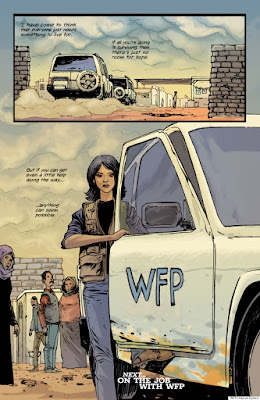Links & Contents I Liked 171
Hi all, This first link review of the new term gives me the pleasure to welcoming all our new & returning ComDev students! It just so happens that this review aligns quite nicely with some of the seminar discussions we has had and will have next week! In Development news we are looking at more commentary on the World Development Report; a new report on the power of the Gates foundation; how to communicate the refugee situation; Lesotho & development; the story of the (humanitarian) tarp; how aid work can strength empathy at home; how to improve UN’s systems to deal with corruption; how to manage projects, people and results in contested development spaces; ITU on IoT; Our digital lives features predatory bureaucratization; big data & the ethnographer & the fear of screens. Lots of new readings , including the first open access IDS Bulletin; new study on how misinformation spreads; handbook on Twitter & research, social media in Uganda and why paying teachers more

